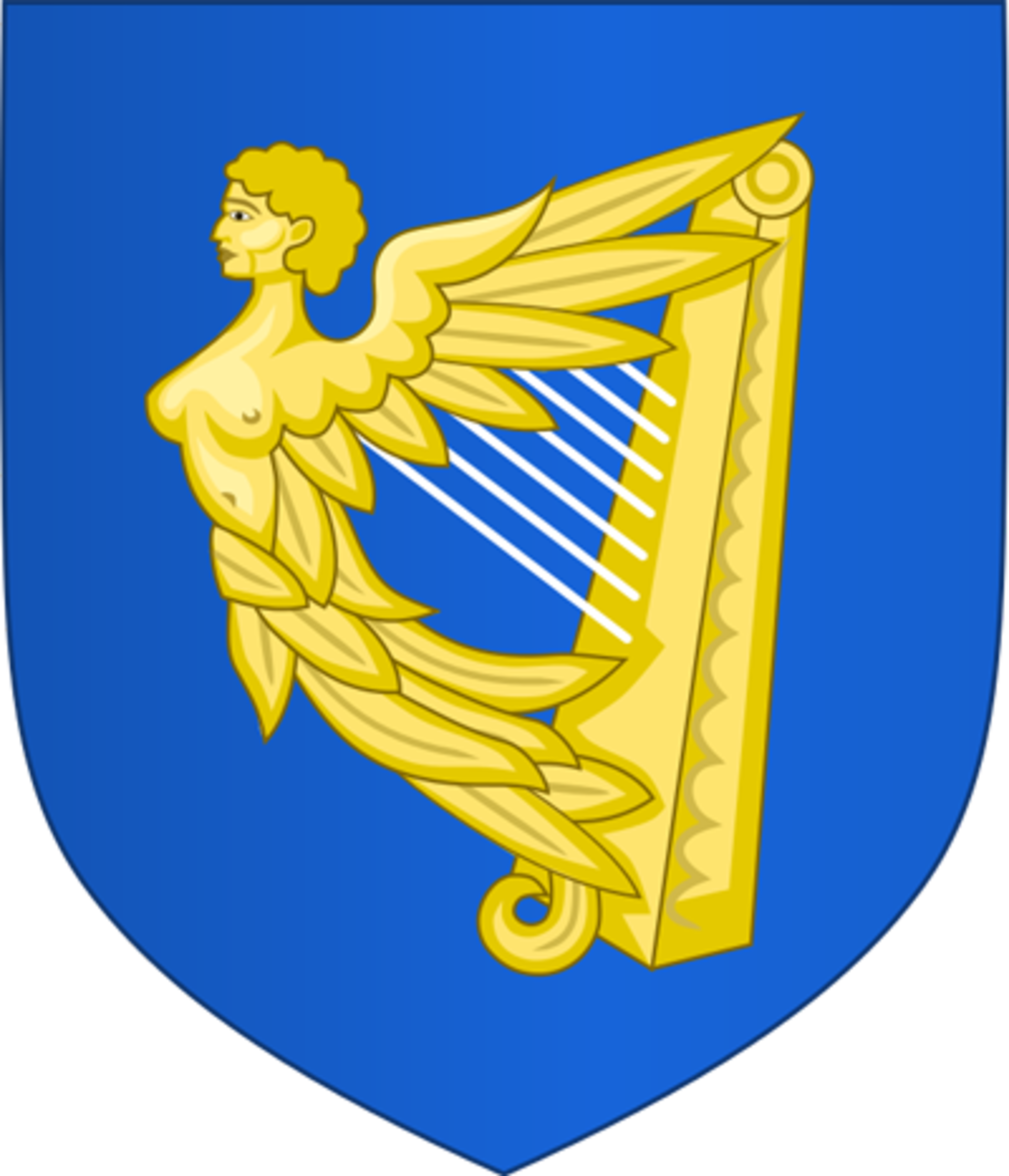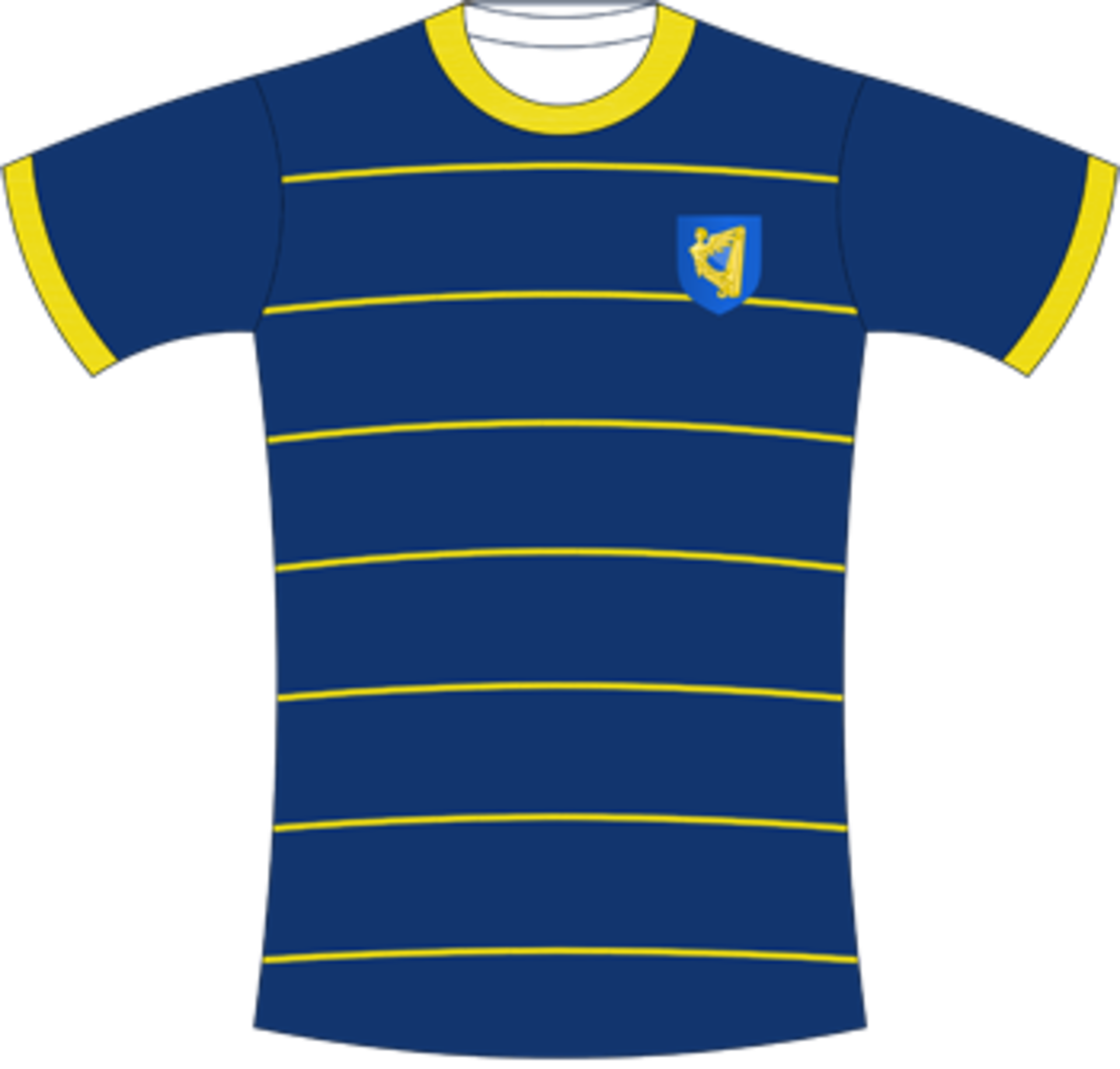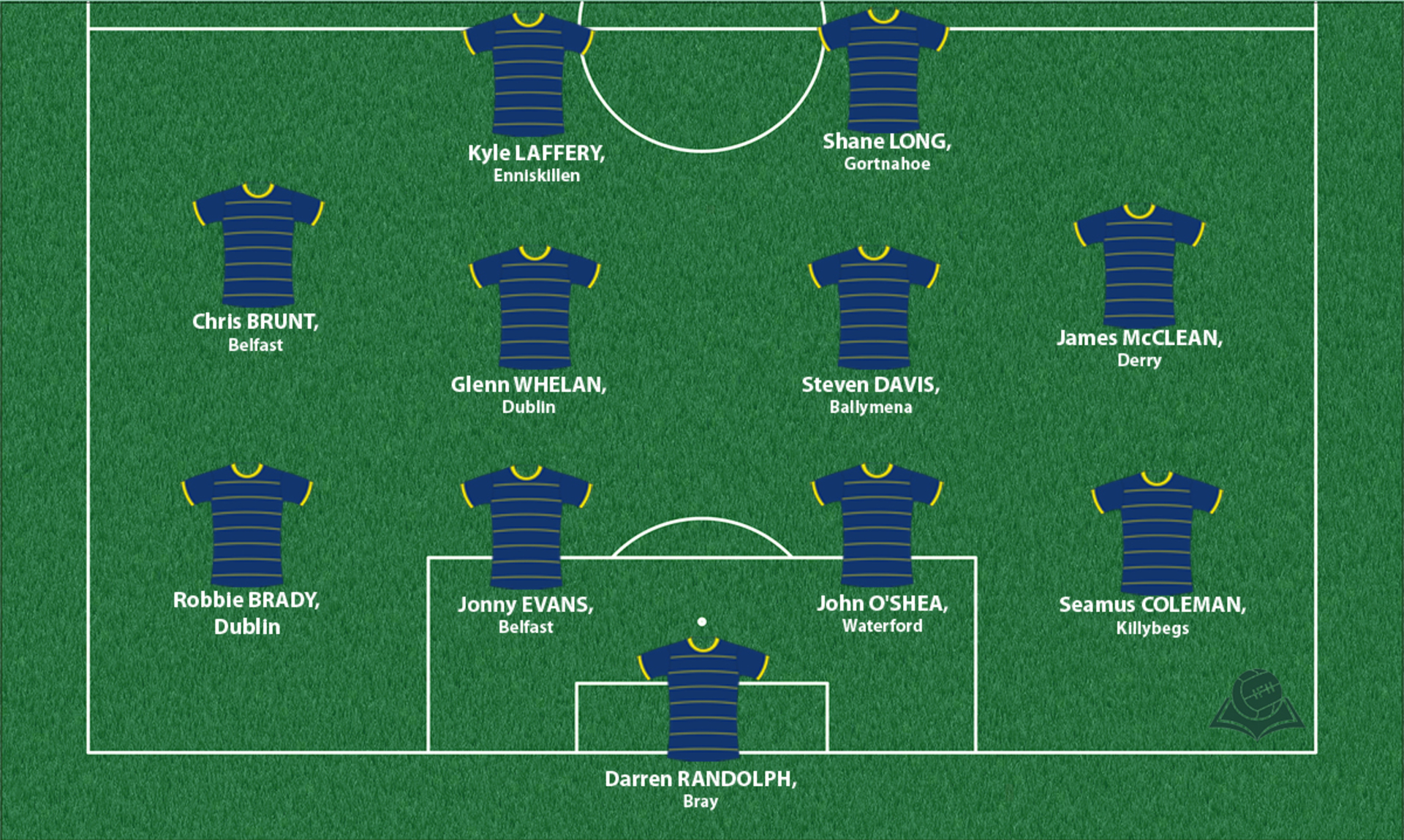The Kingdom of Ireland
The kingdom of Ireland was never a unified state, and from the early Middle Ages on it was comprised of various provincial kingdoms (sub-kingdoms) (Connacht, Leinster, Meath, Munster, Ulster), whose kings attained or lost the title of “High King” in bitter struggles, and within each of these kingdom was the whole world of clans.

Coat of arms

Shirt
| Position | First name | Last name | Mjesto rođenja | Like | Dislike | |
|---|---|---|---|---|---|---|
| GK | Darren | RANDOLPH | Bray |
1 |
0 |
|
| GK | Michael | McGOVERN | Enniskillen |
0 |
0 |
|
| DC | Craig | CATHCART | Belfast |
0 |
0 |
|
| DC | Jonny | EVANS | Belfast |
0 |
0 |
|
| DC | Kevin | LONG | Cork |
0 |
0 |
|
| DC | Shane | DUFFY | Derry |
0 |
0 |
|
| DRC | Paddy | McNAIR | Ballyclare |
0 |
0 |
|
| DLC | John | O'SHEA | Waterford |
0 |
0 |
|
| DLC/DMC | Marc | WILSON | Aghagallon |
0 |
0 |
|
| DR/MR | Seamus | COLEMAN | Killybegs |
6 |
7 |
|
| DL/ML | Stephen | WARD | Dublin |
0 |
0 |
|
| DMC | Glenn | WHELAN | Dublin |
0 |
0 |
|
| DMC/DRLC | Chris | BAIRD | Ballymoney |
0 |
0 |
|
| MC | Darron | GIBSON | Derry |
0 |
0 |
|
| MC | Jack | BYRNE | Dublin |
0 |
0 |
|
| MC | Jeff | HENDRICK | Dublin |
0 |
0 |
|
| MC | Steven | DAVIS | Ballymena |
0 |
0 |
|
| MLC | Conor | HOURIHANE | Cork |
0 |
0 |
|
| ML/DL | Chris | BRUNT | Belfast |
0 |
0 |
|
| ML/DL | Robbie | BRADY | Dublin |
0 |
0 |
|
| MRLC | Alan | JUDGE | Dublin |
0 |
0 |
|
| MRLC | David | MERLEY | Cork |
0 |
0 |
|
| AMC | Stephen | IRELAND | Cobh |
0 |
0 |
|
| AMLC | Wes | HOOLAHAN | Dublin |
0 |
0 |
|
| MRL | Stuart | DALLAS | Cookstown |
0 |
0 |
|
| AMRL | James | McCLEAN | Derry |
0 |
0 |
|
| FRLC | Shane | LONG | Gortnahoe |
0 |
0 |
|
| FC | Daryl | MURPHY | Waterford |
0 |
0 |
|
| FC | Josh | MAGGENIS | Bangor |
0 |
0 |
|
| FC | Kyle | LAFFERTY | Enniskillen |
0 |
0 |
|
| FC | Liam | BOYCE | Belfast |
0 |
0 |
|
| FC/SS | Robbie | KEANE | Dublin |
1 |
0 |
(Today part of : Republic of Ireland, Northern Ireland)
The English conquests of Ireland began with the invitation of one Irish sub-king at the end of the 12th century, and by the 14th century they had settled in cities in the south east, bringing the Irish parliament under their control. Due to the great cultural, lingual, and institutional differences the integration with the central and western parts of the island, inhabited by Celtic tribes, was never achieved. The victory of the Reformation in England in the 16th century was not a reaction to the demands of the common people, but a tool for the court to strengthen their power, and for the secular elites to plunder the Church.
On the other hand, the great majority of the Irish, who were loyal Catholics, rejected the Reformation, which was of key importance for Ireland’s distancing from integration into the British consciousness and political order, as opposed to, for instance, Scotland and Wales. The resistance against the Reformation was not limited only to the Catholic Celtic areas, but also included the Irish “old Englishmen.” Nevertheless, Irish connections with the Catholic power of Spain, and the prevailing fear of its possible invasion of England, as well as the apparent collapse of the English rule over the majority of Ireland, influenced the reinforced determination of London to subjugate Ireland forever.The resistance of Ulster in the northeast of the island was overcome in this context, where the English created a “loyalist” commune, made up of a large number of immigrant Protestant Scots, but also the Irish who had left Catholicism. Although Spain did attempt to conquer England, on whose throne it claimed certain rights, the annihilation of its Armada (1588), with some help from the winds, would be recognized as God’s providence, and an impression was created that the state itself was under God’s protection.
Sources
- Jeremy BLACK, Povijest Britanskih otoka, Zagreb, 2004.
- Felipe FERNANDEZ-ARMESTO, Narodi Europe, Zagreb, 1997.
- Grupa autora, Povijest: Počeci novog doba (16. stoljeće), knjiga IX., Zagreb 2008.
- Adrian HASTINGS, Gradnja nacionaliteta , Rijeka, 2003.
